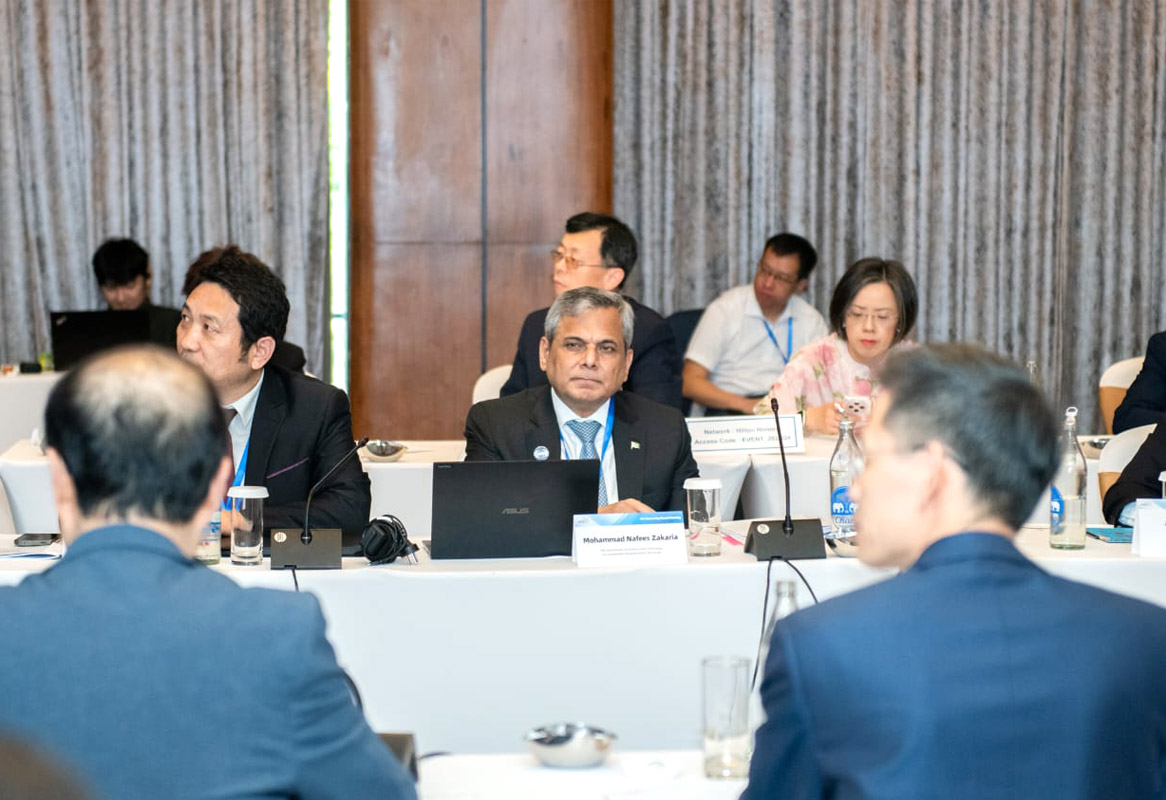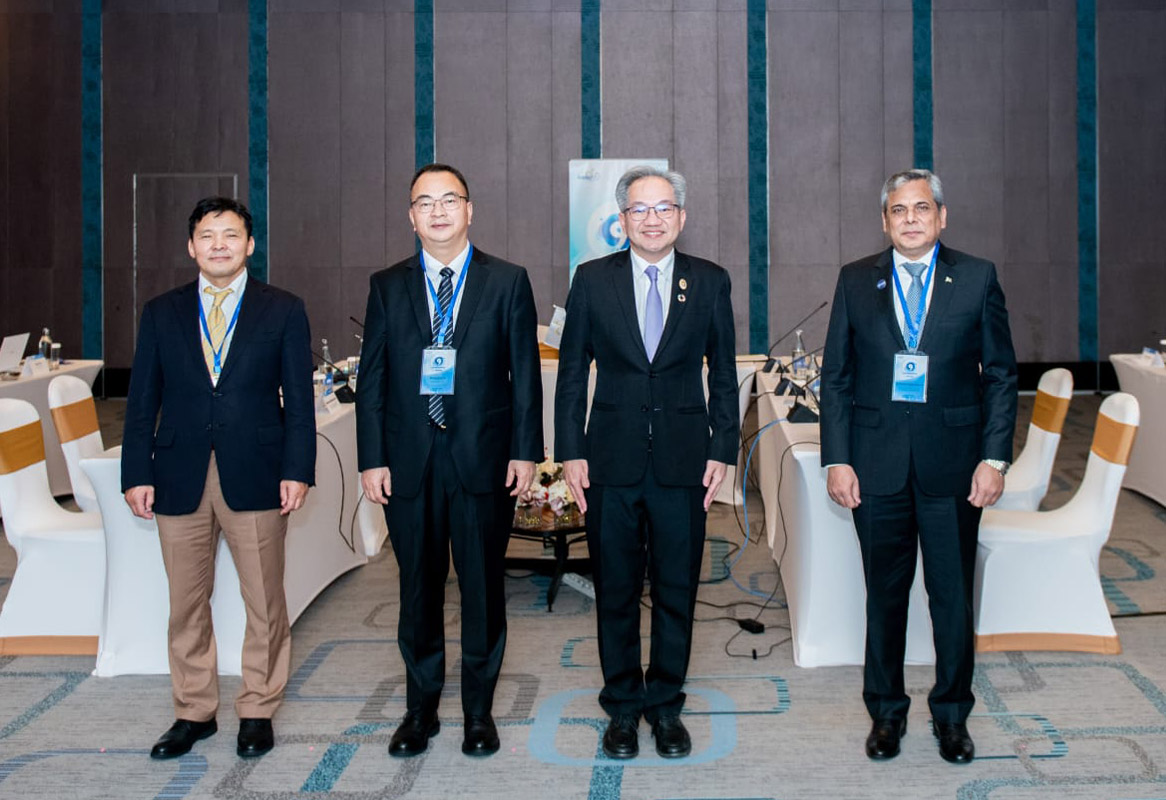The 9th Governing Board meeting of the Alliance of National and International Science Organizations for the Belt and Road Regions (ANSO) was held in Bangkok, Thailand on December 11, 2024. The meeting was hosted by the National Science and Technology Development Agency (NSTDA), Thailand, and it was Chaired by Prof. Sukit Limpijumnong, President of NSTDA and incumbent President of ANSO.
ANSO, established in 2018, is an international scientific organization, dedicated to China’s Belt and Road Initiative (BRI) and achieving the UN SDGs.

COMSATS joined ANSO as a member in 2019 and its Executive Director, Ambassador Dr. Mohammad Nafees Zakaria, was subsequently elected as a member of ANSO Governing Board in November 2023. COMSATS is an intergovernmental organization having 27 member states from Asia, Africa, Middle East and Latin America, endeavoring to promote science, technology and innovation through South-South cooperation.
As the Governing Board member, Amb. Zakaria participated in the 9th meeting that was also attended by Prof. Hongping He, Vice President of Chinese Academy of Sciences; and other Board members belonging to Mongolia, Türkiye, Serbia, Senegal and Brazil. During the meeting, ANSO Progress Report 2024 was presented by Prof. LIU Weidong, Executive Director, ANSO Secretariat. The Governing Board members reviewed the membership applications and selected 9 new member organizations for consideration of the ANSO General Assembly. The Governing board members also reviewed suggested amendments to ANSO’s vision and mission, and Statutes, and endorsed the draft Regulations on the use of its logo to protect its intellectual property. The members deliberated upon the organization’s ongoing and planned activities, as well as strategies to strengthen collaboration among the member organizations. In all, the meeting provided direction and impetus for setting agenda for the 4th General Assembly Meeting that was decided to be held in Beijing next year.

While sharing his views, Ambassador Zakaria stated that the developing countries need support for improving their infrastructure, such as upgradation of laboratories, in order to truly reap the benefits of science and technology. Citing the example of earlier outbreak of COVID-19 pandemic, Ambassador Zakaria stated that those countries, which had adequate IT infrastructure, could offset the associated economic losses. He suggested initiation of programs to facilitate the developing countries in improving their infrastructure to support practical scientific initiatives and easing adaptability. He also proposed collaboration between COMSATS and ANSO for a joint scholarship program.
The meeting concluded with a renewed commitment to harness the collective expertise and resources of ANSO members, ensuring that science and innovation are adequately utilized to serve as key drivers for sustainable development and economic growth.





